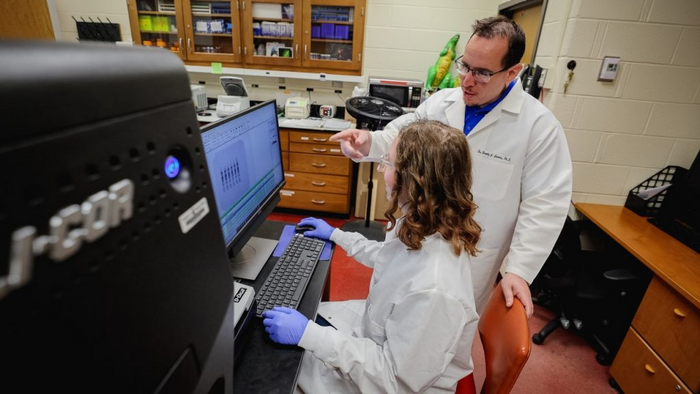From humans to plants to single-cell organisms, there’s a protein that rules them all.

Credit: Virginia Tech
From humans to plants to single-cell organisms, there’s a protein that rules them all.
This protein does general housekeeping of the cells, regulating them through normal daily functions.
Virginia Tech researchers found that one specific form of this ubiquitous protein has a different function in the female brains – it helps regulate events in the memory that cause post-traumatic stress disorder (PTSD).
Watch video: https://video.vt.edu/media/1_lnhr71n4
“The protein is primarily thought of as a protein that marks other proteins to be destroyed,” said Tim Jarome, an associate professor in the College of Agriculture and Life Sciences’ School of Animal Sciences. “For it to be doing this function in the context of PTSD in females is very surprising.”
This protein, ubiquitin, even has its name originating from ubiquitous because of its presence across all walks of life. The form of this protein that the researchers could manipulate, called K-63, was selective in forming fear memories in the female brain.
“Oftentimes, molecules are found in the brain that are involved in forming these fear-based memories in both sexes, and this is the first time that we found one that’s selectively involved in one sex,” Jarome said. “In particular, this was found in the sex that seems to be more likely to have PTSD. It’s rare to find these mechanisms that are specific to one sex in terms of regulating the underlying factors that cause PTSD.”
The discovery could lead to the development of better therapeutic treatments. Kayla Farrell, a Ph.D. candidate in the School of Animal Sciences, was the project lead.
The research was published recently in Molecular Psychiatry in the Nature Portfolio of Journals. The research was supported by a grant from the National Institute of Mental Health.
PTSD is a complex disorder with a variety of therapeutic treatment options that include pharmacological approaches. By having a specific molecule to target, pharmacological approaches could be considered.
“Right now, treatment options are not very effective and the success rate isn’t very good,” Jarome said. “PTSD is not created equal among patients, and we know females are more likely to have it. The therapeutic approaches that we take to treat it might have to differ between males and females. This may be a mechanism in which we could specifically target treatment in females as a way to treat PTSD.”
Journal
Molecular Psychiatry




